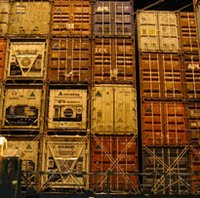Imagine a day, perhaps sometime in the next year and a half, when world leaders triumphantly proclaim that an agreement has at long last been reached in the Doha Round of global trade negotiations. Hosannas pour forth from editorial writers and commentators, all declaring that after so many disappointments and failures since the talks were first launched in 2001, the breakthrough accord heralds a giant leap forward for global commerce and international economic cooperation.
Could it happen? Glimmers of hope have emerged from the World Trade Organization in recent months that a compromise may be in the offing, one loosely patterned on a deal that fell apart in July 2008 after a marathon, nine-day meeting at WTO headquarters in Geneva. Since then, one of the main antagonists, India, elected a more stable government in the spring of 2009, and the new Indian trade minister, Anand Sharma, has adopted a more conciliatory tone than his predecessor. As for the United States, U.S. Trade Representative Ron Kirk has proposed an interesting approach for cutting through some of the trickiest problems bedeviling the talks.
An unusually upbeat mood prevailed at an early-September meeting in New Delhi attended by ministers from 35 countries. Although the meeting accomplished little more than an agreement to restart negotiations, the host, Sharma, proclaimed that "the impasse has been broken," while WTO Director-General Pascal Lamy voiced optimism that the meeting could be "the beginning of the endgame of the Doha Round."

